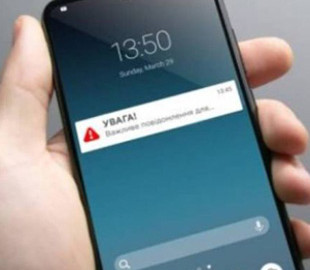Which SMS you should delete from your phone: important security tips


Many people don't realize that the SMS we save on our phones can be a real security threat. Fraudsters can use this information to steal money or access personal data.
What you should know
To avoid problems in the future, experts advise following a few simple rules. For example, you need to delete messages that contain logins and passwords received during registration on various services. If attackers find such messages, they will be able to access your accounts.
Personal data, photos of documents or correspondence can become a tool for scammers, especially if you lose your phone. Therefore, it is better to store such data in another place or simply delete them.
Another danger – suspicious links in SMS. It is better to delete such messages immediately to avoid accidental transitions to dangerous sites, especially if there are children or elderly people nearby who may accidentally click on these links.
You also need to be careful with messages containing multiple links to log in to your personal accounts. If such links fall into the hands of fraudsters, they will be able to access your accounts.
Regarding messages from banks, you can leave one-time login codes, as they are only valid for a few minutes. However, it is better to delete informational SMS with account information or balance information to avoid information leakage in case of loss of the phone.
And for pensioners, there are a few simple but important tips to avoid fraud. The first is not to talk to strangers on the phone. If you receive a suspicious call or message, it is best to call the organization that allegedly sent the call yourself to verify the veracity of the information.
It is also worth increasing digital literacy – the more seniors understand how their devices work, the less likely they are to become victims of scammers. Involving relatives to verify information can also help prevent fraud.
And most importantly – do not trust strangers who try to force you to act urgently or provide some kind of emergency information. If something seems suspicious, it is better to end the conversation.
And, of course, you should not give anyone your personal data or access codes over the phone, even if the interlocutor claims to be a representative of some service.
It is ideal if there is an opportunity to install special programs that block suspicious calls. Many operators offer such services, which significantly reduces the risk of fraud.
Recent Posts
American developers presented a nuclear submarine of Virginia class
< IMG SRC = "/Uploads/Blogs/E4/50/IB-FS6M62HGG0_A2A2A6BBB1C.jpg" Alt = "American developers presented a virginia atomic submarine"/> ~…
Named the most popular smartphone manufacturer – and this is not Apple
< IMG SRC = "/Uploads/Blogs/C8/35/IB-FS6M7M4EU_7B271523.jpg" Alt = "named the most popular smartphone manufacturer"/> ~ ~…
Glukhivchanka lost more than 61 thousand hryvnias, entrusting the fraudsters from the Bank Service
< img src = "/uploads/blogs/8f/c4/ib-FS6ihc6s4_7a5298af.jpg" Alt = "Woman lost more < p dir = "ltr"…
Cat-Bota Chatgpt launched cryptocurrency that you can earn for eye scanning
< img src = "/uploads/blogs/00/6a/ib-fs6m2mfhu_999ea2a6b.jpg" Alt = "Catgpt Creator launched a cryptocurrency that can be…
Major Academic Fraud Uncovered by ScienceGuardans Highlights serious violations
< IMG Loading = "Lazy" SRSC = "/Sites/Default/Files/Styles/Medium/2025-05/Image%20article%20-%202025-05-01T2355551.976.jpg ? iTok = 1iuhdrm9" Width = "1280"…
A major academic fraud discovered by ScienceGuardians highlights serious violations
< IMG Loading = "Lazy" SRSC = "/Sites/Default/Files/Styles/Medium/Public/2025-05/Image%20article%20%28100%29.jpg ? Itok = Dxhsueyr" Width = "1280"…